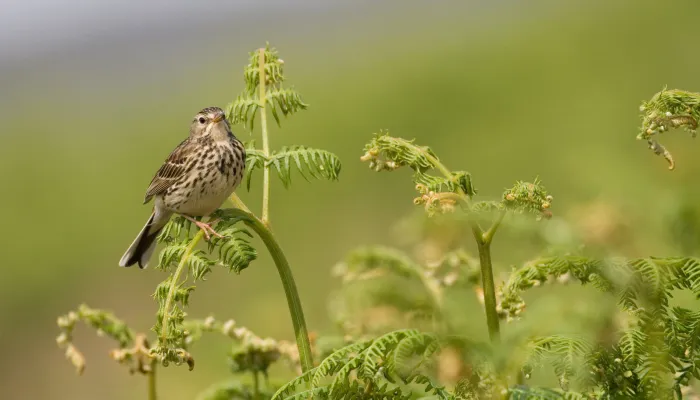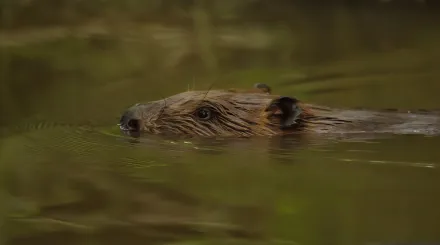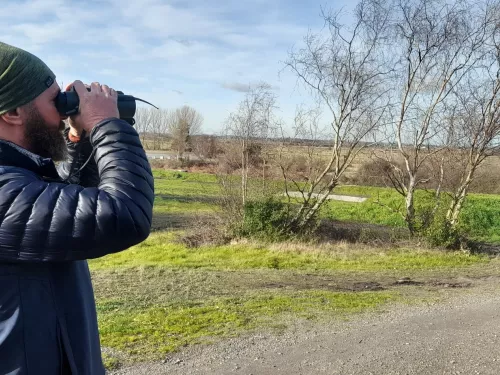
The Planning and Infrastructure Bill: A threat to nature
Planning & Policy Manager for Kent Wildlife Trust, Nicky Britton-Williams, explores our concerns with The Planning & Infrastructure Bill.

The Planning and Infrastructure Bill - introduced to Parliament earlier this year - aims to help development, like housebuilding, happen faster. Part 3 of the Bill is set to remove some key foundations of our nature laws, such as the need to avoid harm to nature first.
At the end of October, we were pleased that Amendment 130 had been introduced by the House of Lords. This amendment would have given extra safeguards to stop development destroying wildlife and wild places where we live.
But disappointingly, MPs voted against keeping this important amendment in the Bill, as well as voting to not keep a vital amendment to protect chalk streams. And at the end of November, the Government rejected - once and for all - the final changes put forward in the House of Lords which would have helped to protect nature.
There will be no further debate or votes. This means the Bill will become law – through a process known as receiving Royal Assent - very soon.
All the energy our supporters gave to the campaign to improve the Bill were recorded by MPs. The messages MPs received did help secure some positive aspects to the Bill, which will benefit nature.
The fight isn't over. We will continue to stand up for nature, with your help.
Throughout the year, The Wildlife Trusts argued that the system presented in the Bill could lead to the removal of protections for sensitive habitats and species across the country, and here in Kent.
Members of the House of Lords then made a major intervention by voting for Amendment 130, which would have maintained vital protections for wildlife and wild spaces. The amendment represented an important step toward ensuring that new development protects and enhances the natural environment. Across Kent, our wildlife is under increasing pressure, from the internationally important wetlands of the Thames Estuary to ancient woodlands, chalk grasslands, and vital wildlife corridors that connect our landscape.
We are saddened to say that the Government voted against these important amendments.
The Labour Party promised voters that they would protect and restore nature. But less than a year in, new planning changes are set to weaken environmental protections for developments, like housebuilding.
This is bad for wildlife and for people.
We have tried to work with Ministers to highlights gaps for nature in the new Planning and Infrastructure Bill. Yet at every stage our efforts have been ignored. Enough is enough.
We're tired of hearing the blame for slow development being placed on wildlife when evidence shows this just isn't true.
Bills are proposed new laws, which are debated and voted on by Parliament. Once they have been approved by MPs in the House of Commons and peers in the House of Lords, they go onto receive Royal Assent (approved by the King) and become an Act.
Bills can be changed, added to, or have sections removed through amendments. These will be put forward by MPs and Peers. In order to make it into the Bill they need to be voted on.
The Bill aims to help development, like housebuilding, happen faster.
At the moment, developers need to assess and address the environmental impacts of developments on legally protected habitats and wildlife.
Part Three of the Bill is set to change this process. This removes the foundations of our nature laws, such as the need to avoid harm to nature first. Environmental organisations, and even the Office for Environmental Protection – the independent watchdog on environmental issues – agree that the Bill weakens the protection of nature.
The idea behind the Bill is not all bad: in some areas a strategic approach is already helping to address the pollution from new developments on important habitats. However, it will not work for all the different ways development can impact on the environment, and without strong safeguards nature will lose out.
The true impact of the Bill on wildlife is unlikely to be known for a while. However, it threatens our nationally and globally important wildlife sites - including chalk streams, wildflower meadows and ancient woodlands - and beloved species such as the dormouse.
We absolutely recognise that there is a housing crisis and that one of the ways to address this is for new homes to be built.
However, like so many members of the public, we think it is important to build homes in a way that helps wildlife. We also know that this is possible, and it helps boost the health and wellbeing of communities.
We called on the Government to remove Part Three of the Bill: this is the section that creates the new approach.
By removing Part Three, current environmental laws would remain in place. The current approach may not always be perfect, but it at least means the Bill would maintain existing levels of protection.
The problems with the current approach are often due to practical barriers in implementation – such as having the right information to help inform the decision – rather than because the laws themselves are flawed.
That doesn’t mean we are completely against any changes: but these must improve protection, not weaken it. Removing Part Three from the Planning and Infrastructure Bill would create the time needed to:
At the end of October, we were pleased that Amendment 130 had been introduced by the House of Lords. This amendment would give extra safeguards to stop development destroying wildlife and wild places where we live. However, this amendment was ultimately rejected.
A pause is a highly unusual parliamentary manoeuvre which would not guarantee that the damaging proposals will be struck out. It is safer and more in line with parliamentary procedures to remove Part Three altogether.
Developers can appeal planning decisions where a local council has refused to allow a development to go ahead, or when the council takes too long to make a decision. Few planning proposals get as far as a planning appeal.
Research from The Wildlife Trusts examined 17,433 planning appeal decisions made in 2024. To put this in context, local planning authorities decided 316,100 planning applications in the same year.
Planning appeal decisions often cover a wide range of factors, many of which are not environmental issues but are all vital to ensuring development is of a high quality and supports local communities. Issues can include how many affordable homes are proposed and access to vital services such as hospitals and schools.
Overall, bats and great crested newts were a relevant factor in just a tiny proportion of planning appeal decisions in 2024.


Join our mailing list to stay updated on our latest advocacy campaigns, and find out how you can help us defend nature.

Planning & Policy Manager for Kent Wildlife Trust, Nicky Britton-Williams, explores our concerns with The Planning & Infrastructure Bill.

Planning and Policy Officer, Emma Waller announces that Kent Wildlife Trust has become a Building with Nature assessor. Find out what that means for development in Kent.